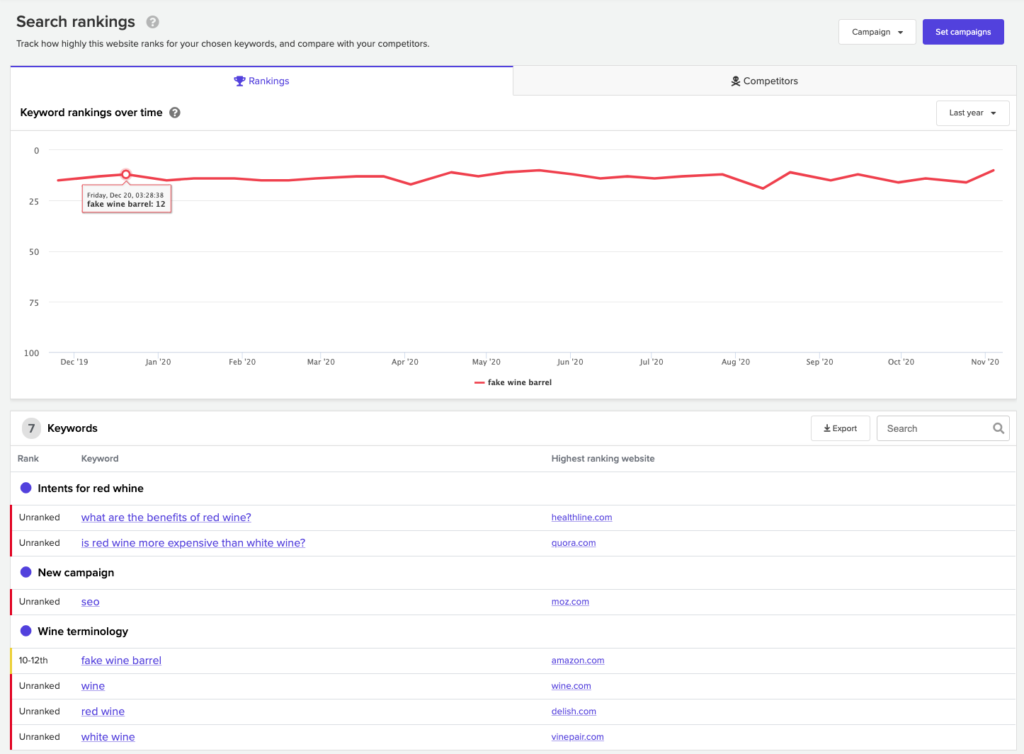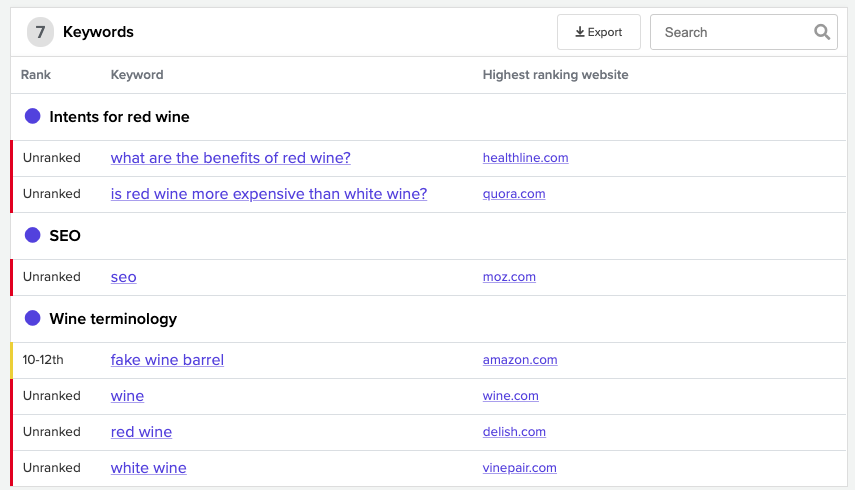Rankings screen
This screen shows how this website ranks for specific keywords in search engines. For example, is your website 1st in Google for its own name?

Your keywords and campaigns need to be set up before you can monitor them. See how to choose keywords.
Each keyword is shown in a table, broken up by their campaign like so:

The large text (“Wine terminology”, “Intents for red wine”, above) is the campaign name. You can choose how you want to break your keywords up into campaigns to make them easier to understand and filter.
Each keyword is shown below this, in blue, with various information displayed to its right:
- Highest ranking website – the best rank you currently have for this keyword, across all locations and devices tested.
Clicking on a keyword will show much more information about it:

Here you can browse through three tabs of information about a keyword:
Rankings tab
This shows how this website ranks for this keyword in different locations and devices. The specific locations shown will depend on what you chose for this search campaign.
Silktide also tests all of your rankings on both mobile and desktop devices, as each can show very different results. For example, if your website is poorly optimized for mobile, it may not rank for mobile at all.
Competitors tab
Here you can see which websites rank highest for this keyword across all of your locations and devices.

Each website is shown along with how well it ranks for this keyword in each location and device combination (e.g. 1st place in Moscow for desktop, 2nd place for Cairo on mobile, etc). This is summarized into a relative “strength” bar, which shows how well each website ranks relative to each other (the highest-ranking website is always 100% of the strength bar).
If your website is ranked at all, it will be highlighted in this table:

This allows you to identify your competitors for a given keyword, and measure your relative strength against them.
Why it matters
High ranking in search engines for appropriate keywords will almost always result in more high-quality visitors, and therefore sales or interest in your organization.
If you can achieve high rankings they are exceedingly cost-effective. Advertising has costs in proportion to the audience you receive – but organic search rankings are free at any scale. They’re also exclusive, in that your high ranking denies a competitor the same ranking.
At an absolute minimum, you should rank highly (ideally 1st) for your own name, or even people who know you will struggle to find you. Nearly all organizations should measure and aim to improve their ranking for a range of appropriate keywords.
Setting your keywords and search engines
To use this test you must specify what keywords and locations you wish to measure. You will be asked to do this when adding a website, or when viewing this screen, if you haven’t already. You can change your existing settings under Settings > Search campaigns.
If you’re unsure what keywords to use, see how to choose keywords.